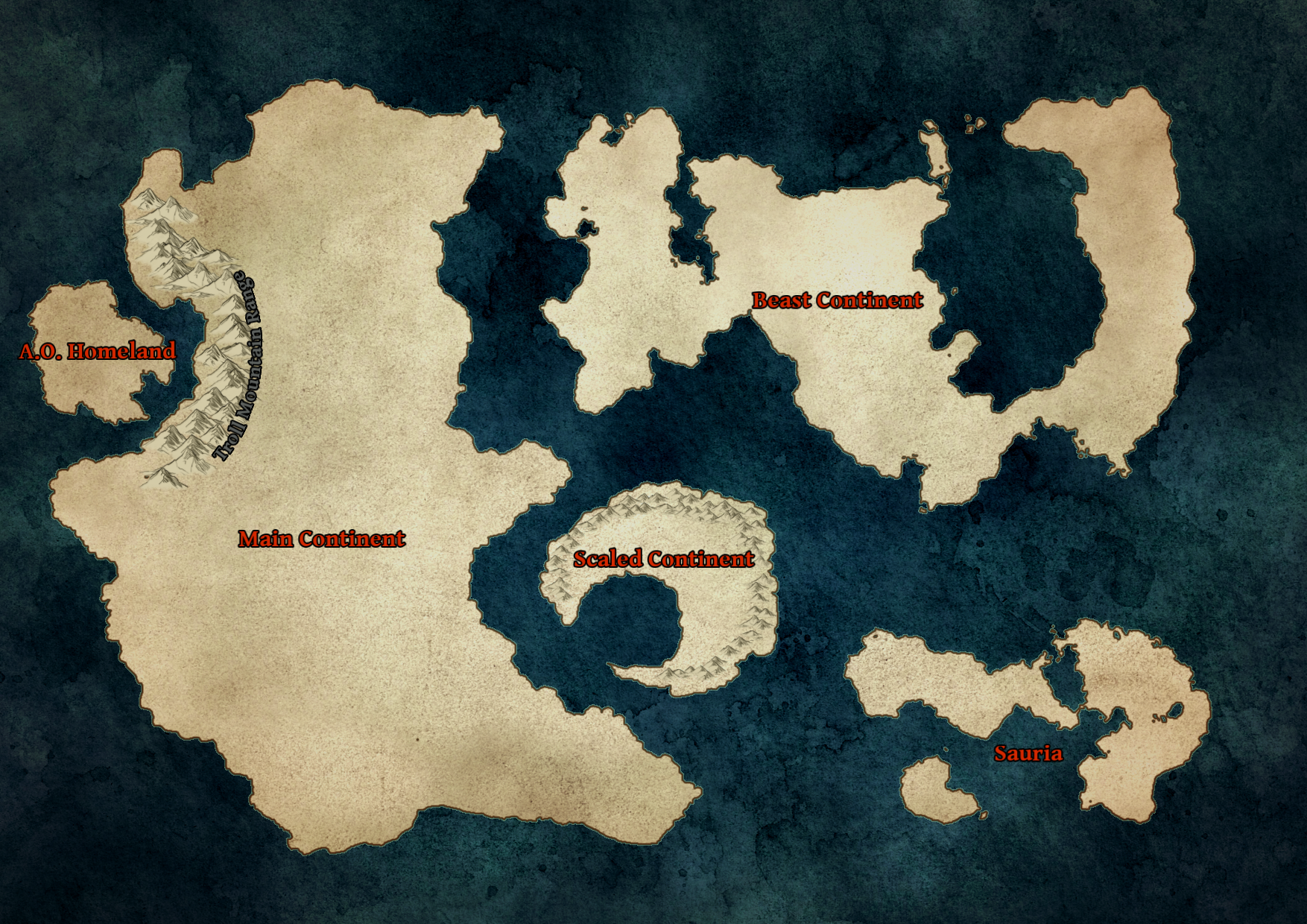Merfolk
Basic Information
Anatomy
Merfolk have the upper body, arms, and head of a humanoid, while the lower body either resembles a scaled fish tail or a cetacean tail. Women tend to be slightly smaller than the men. While many Kinfolk consider them to be beautiful and elegant, there are rumors of some truly monstrous individuals being spotted out in deeper waters.
Biological Traits
Breathing
Merfolk can spend can indefinite amount of time under the water, thanks to their gills. They can also breathe air for short periods of time, but must return to the sea eventually.
Illness
Merfolk found washed ashore are often very sick.
They must limit the amount of time they spend basking, for being out of the water for too long will end up with them being sun burnt.
A common illness among merfolk is fin rot.
Mobility
The water is where the merfolk are in their element, for they are agile swimmers. When forced on land however, they are slow and have a difficult time dragging their heavy lower half around.
Ecology and Habitats
Found in the seas all around Tamerea, the majority are found relatively close to the coast, though a few populations have braved the much deeper waters. On warm sunny days they like to drag themselves onto rocks sticking out of the water so they can bask.
It is rare for merfolk to be far from the water.
Dietary Needs and Habits
The majority of a merfolk's diet consists of fish, though they will also eat squid, mollusks, kelp, and crustaceans. Much of the food they eat is either raw or cooked on geothermic vents, due to their reluctance to go to the beaches to use fire.
A few pods have beneficial relationships with the local fishermen, and the two will work together to herd and catch fish. Most pods however, compete with the local fishermen for food, and have begun sabotaging any fishing gear they find.
Additional Information
Social Structure
They live in family pods of around 60 individuals. Most pods set up around good fishing areas, though some are nomadic.
Uses, Products & Exploitation
In recent times some powerful and rich individuals begin keeping merfolk as 'pets'. They are willing to pay high prices for younger, brightly colored individuals with minimal scarring. This has lead to poor fishermen to start hunting them, for even one individual with worth multiple years worth of wages.
Many merfolk dying during or after capture due to stress or poor conditions. Once they reach the buyers location, they are often housed in large glass aquariums.
Facial characteristics
Merfolk have bright, curious eyes, and instead of hair they have long, elegant fins.
Perception and Sensory Capabilities
Their vision is excellent, and they are able to see things perfectly under the waves. Even in low light conditions they are able to see well.
Symbiotic and Parasitic organisms
Often keeps company with dolphins.
Civilization and Culture
Courtship Ideals
When courting a potential mate or strengthening a bond with their mate, men will give tokens of affection such as shells, pearls, and large predator teeth.
Average Technological Level
Weapons that they use include tridents.
Major Language Groups and Dialects
Merfolk have their own language. They are unable to speak any of the surface dweller languages but are capable of learning and using sign language.
They have legendary singing voices.
Common Dress Code
Uses shells, corals, pearls, large predator teeth, etc as jewelry.
Culture and Cultural Heritage
Some nomadic merfolk follow Island Sea Turtles around. They use them as shelter from predators and in return keep them free from parasites.
Tend to be playful pranksters.
Battle
Merfolk will defend themselves if attacked, but if possible would rather avoid a fight.
Interspecies Relations and Assumptions
General
Merfolk have complex relations with other folk, but overall tend to be weary of surface dwellers. If strangers are spotted near their territory they will try to lure them far away.
Most of the time it is scouting/hunting patrols that surface dwellers see, and merfolk are rarely accidentally caught in nets or caught unawares on shore.
Origin/Ancestry
A chimera of an 'Ancient One' and a species of fish.
Average Weight
200-400lbs
Average Length
6-8ft
Body Tint, Colouring and Marking
Typically they come in shades and hues of silver, blue, or green. The vast majority however, tend to have a darker upperside and a lighter underside.
Remove these ads. Join the Worldbuilders Guild



Comments